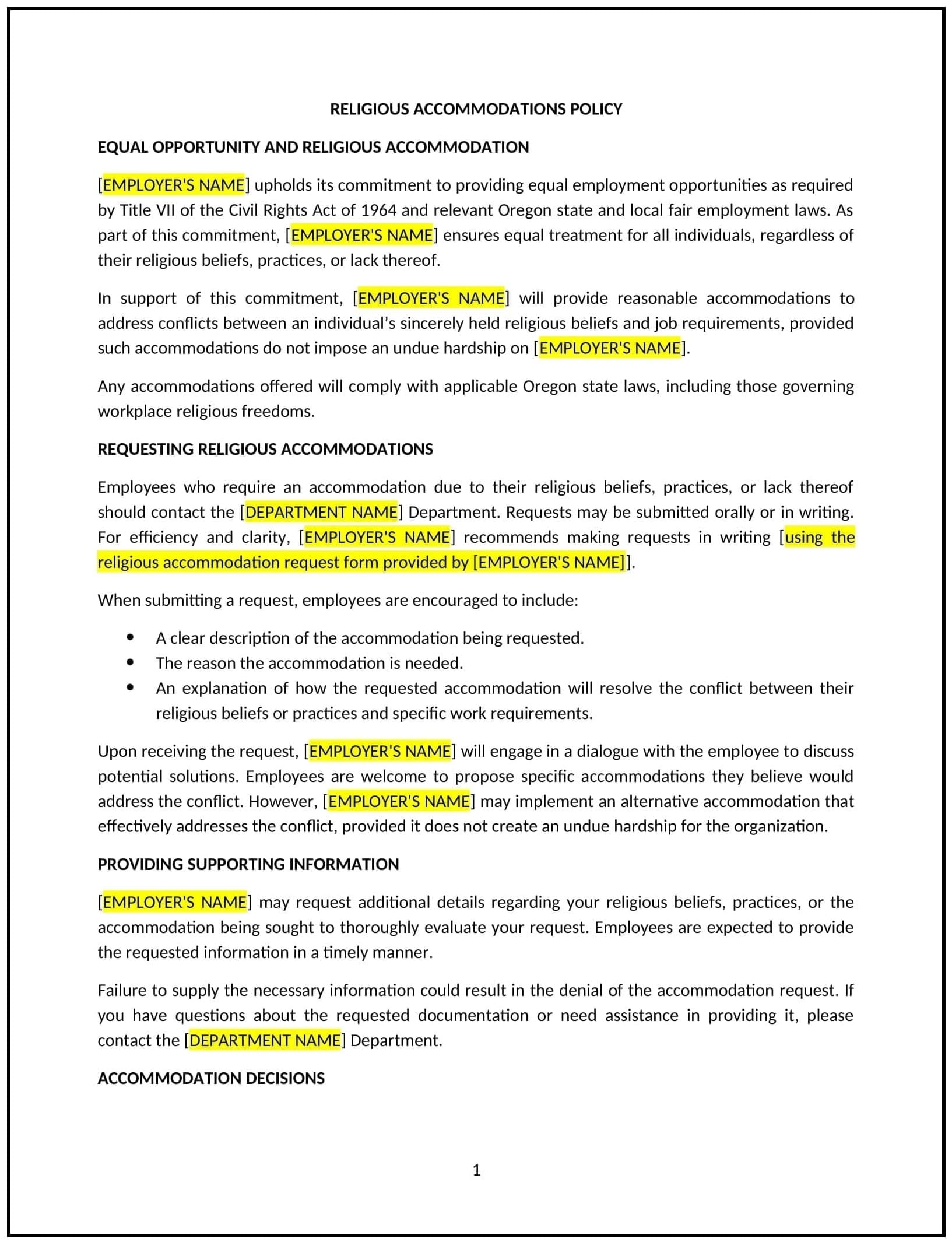Religious accommodations policy (Oregon): Free template
Got contracts to review? While you're here for policies, let Cobrief make contract review effortless—start your free review now.

Customize this template for free
Religious accommodations policy (Oregon)
This religious accommodations policy is designed to help Oregon businesses create guidelines for accommodating employees’ religious beliefs and practices. It outlines procedures for requesting accommodations and maintaining an inclusive workplace.
By adopting this policy, businesses can foster diversity, promote inclusivity, and align with Oregon’s legal requirements for religious accommodations.
How to use this religious accommodations policy (Oregon)
- Define religious accommodations: Clarify what constitutes a religious accommodation, such as modified work schedules or dress code exceptions.
- Establish request procedures: Outline steps for employees to request accommodations, including required documentation and timelines.
- Evaluate requests: Assess accommodation requests based on business needs and potential impacts on operations.
- Provide training: Educate managers and employees on the importance of religious accommodations and how to handle requests respectfully.
- Maintain confidentiality: Ensure that all requests and discussions about religious accommodations remain private.
- Review and update: Assess the policy annually to ensure it aligns with evolving business needs and legal standards.
Benefits of using this religious accommodations policy (Oregon)
This policy offers several advantages for Oregon businesses:
- Fosters diversity: Demonstrates a commitment to respecting employees’ religious beliefs and practices.
- Promotes inclusivity: Creates a welcoming environment for employees of all faiths.
- Enhances employee satisfaction: Shows employees that their beliefs are valued, improving morale and retention.
- Reduces legal risks: Helps businesses avoid potential disputes or violations of religious accommodation laws.
- Builds trust: Strengthens the relationship between businesses and employees by promoting mutual respect.
Tips for using this religious accommodations policy (Oregon)
- Communicate the policy: Share the policy with employees and include it in the employee handbook.
- Provide training: Educate managers and employees on handling religious accommodation requests respectfully.
- Monitor compliance: Regularly review accommodation requests to ensure adherence to the policy.
- Address issues promptly: Take corrective action if accommodation requests are mishandled or denied improperly.
- Update regularly: Assess the policy annually to ensure it aligns with evolving business needs and legal standards.